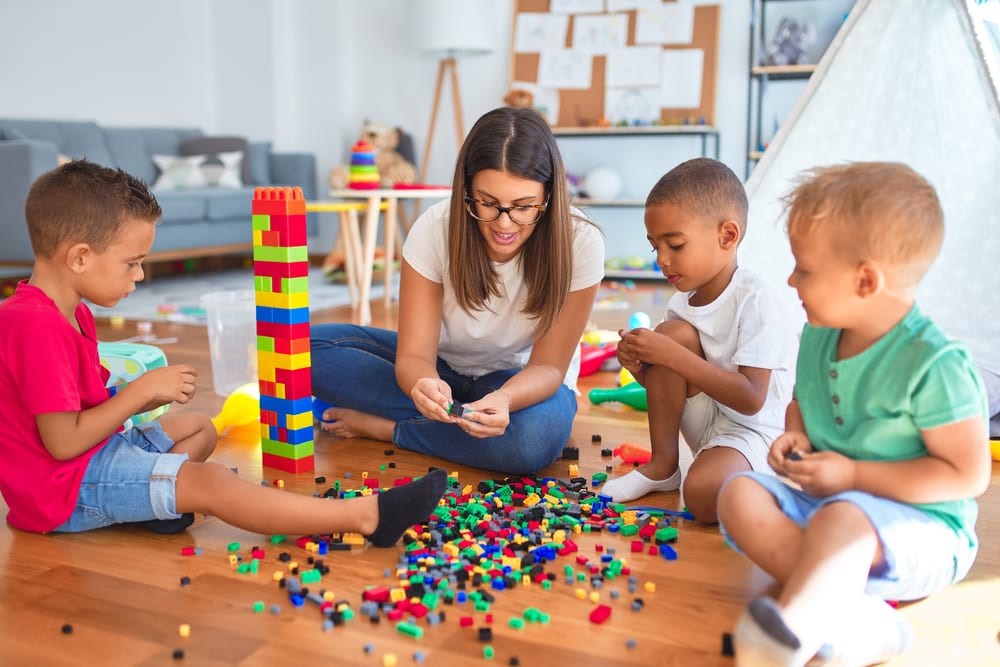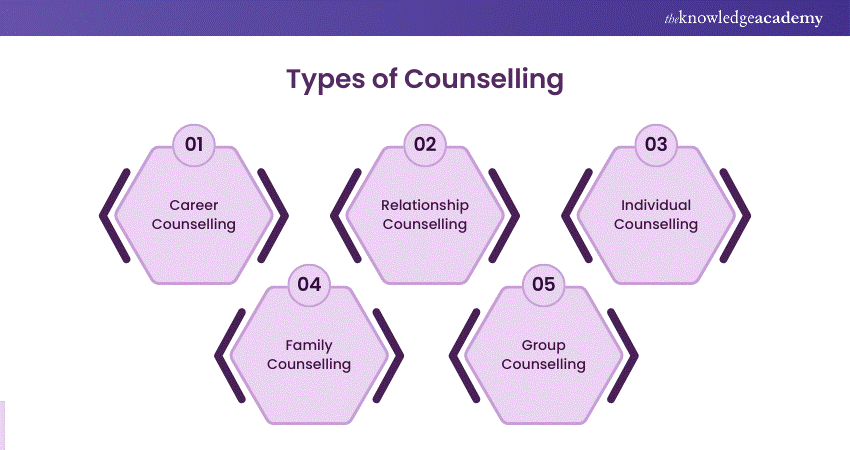Discover All About the Various Kinds Of Therapy Available Today
The landscape of counselling today provides a diverse selection of alternatives tailored to satisfy varying mental wellness requirements. From individual sessions dealing with personal battles to group settings that foster shared experiences, each type serves a distinctive objective (relationship therapy). Couples and household therapies concentrate on connection characteristics, while innovative techniques like art treatment motivate expression. Recognizing these different strategies can disclose important tools for navigating life's obstacles. What might be the best fit for you or somebody you recognize?
Individual Therapy

The procedure generally entails setting individual goals and establishing dealing strategies tailored to the person's circumstances. Methods might consist of cognitive-behavioral therapy, psychodynamic treatment, or mindfulness practices, depending upon the client's choices and needs.
Private therapy equips clients to gain understandings right into their feelings and create abilities to manage life's obstacles successfully. This individually communication fosters self-discovery, eventually bring about individual growth and enhanced psychological well-being. relationship therapy. For many, it ends up being a necessary source in maneuvering the complexities of life and finding a path to psychological strength
Couples Counselling
Pairs counselling offers a structured atmosphere for partners to deal with connection difficulties and improve communication. It commonly concentrates on issues such as conflict resolution, intimacy, and trust. Participants can expect guided discussions that advertise understanding and foster healthier interactions.

Advantages of Couples Counselling
While connections usually deal with difficulties that can appear overwhelming, couples counselling uses a pathway to understanding and resolution. This type of therapy supplies couples with a secure room to discover their sensations and connect better. Through directed sessions, companions can identify patterns of actions, improve dispute resolution abilities, and foster much deeper psychological links. Pairs counselling can also improve shared regard and understanding, enabling people to share their demands and concerns openly. By collaborating with a qualified specialist, pairs can acquire beneficial understandings into their partnership characteristics. Inevitably, the benefits of pairs counselling extend past immediate issues, promoting healthier, more resilient partnerships that can adjust to future difficulties.
Typical Concerns Addressed
Many connections run into a selection of typical issues that can be properly addressed through couples counselling. Communication troubles commonly arise, leading to misconceptions and conflicts. Pairs may battle with psychological disconnection, which can create feelings of seclusion and bitterness. Count on issues regularly emerge, especially after adultery or dishonesty, impacting the foundation of the connection. Additionally, differences in worths or life goals can create considerable tension. Economic anxiety can also stress partnerships, as differences about costs and saving can bring about problem. Taking care of parenting obligations can develop friction for couples dealing with child-rearing obstacles. By resolving these issues in a helpful setting, pairs counselling helps partners get understandings, create much healthier interaction techniques, and job towards solving their differences.
What to Expect
Taking part in pairs counselling can be a transformative experience for companions looking for to resolve their partnership obstacles. During sessions, couples can expect a risk-free setting where they can freely communicate their feelings and concerns. A skilled therapist will direct discussions, aiding companions to recognize patterns, enhance interaction abilities, and create much healthier conflict resolution methods.
Pairs typically take part in both individual and joint sessions, permitting diverse point of views on the problems at hand. The therapist might appoint workouts or homework to enhance abilities discovered throughout sessions. As couples progress, they might experience increased compassion and understanding towards each other, ultimately working towards rebuilding count on and intimacy. In general, couples counselling aims to cultivate a more powerful, a lot more durable partnership.
Family Therapy
Family treatment acts as a necessary resource for dealing with interpersonal characteristics within families. This healing method concentrates on boosting communication and dealing with conflicts among household participants. By taking part in household treatment, individuals can find out to recognize one an additional's viewpoints, fostering compassion and collaboration.
Specialists frequently use various methods to help with conversations, discover underlying problems, and advertise much healthier relationships. Procedure may involve all household members or concentrate on specific individuals, relying on the needs of the family members unit. The specialist's duty is to offer a risk-free setting where each member can share their ideas and feelings without judgment.
Household therapy can be valuable for a series of problems, consisting of divorce, despair, parenting obstacles, and mental wellness worries. Ultimately, this kind of therapy aims to enhance familial bonds, boost psychological support, and equip households with devices to navigate difficulties, contributing to overall family members health.
Group Therapy
People might feel isolated in their struggles, group counselling offers a helpful setting where they can connect with others dealing with similar difficulties. This kind of counselling typically entails tiny teams led by a trained facilitator, allowing participants to share experiences and insights in a secure space.
Team coaching cultivates a feeling of area and belonging, which can be specifically helpful for those managing issues such as dependency, anxiousness, or pain. Participants frequently find comfort in understanding that they are not alone in their feelings, bring about raised compassion and understanding.
The communication within the group can also assist in individual growth, as people receive responses and support from peers that may use different point of views. Eventually, team counselling acts as an effective device for recovery, advertising both private and cumulative development as members function together in the direction of common goals.
Art and Play Therapy
Art and play treatment gives an imaginative outlet for people, particularly youngsters, to express emotions and experiences that may be hard to verbalize vocally. This therapeutic strategy utilizes creative activities and play to cultivate interaction, allowing individuals to discover their feelings in a risk-free and encouraging setting. With attracting, painting, or taking part in play scenarios, customers can convey their innermost ideas and feelings without the restrictions of language.
Specialists educated in this modality observe the communications and creations of their clients to obtain understandings into their emotions and psychological difficulties. adhd counselling. The non-threatening nature of art and play can be specifically helpful for children that could struggle with standard talk treatment. In addition, it promotes self-esteem and problem-solving abilities, motivating individual development. In general, art and play therapy works as an effective methods of healing, assisting in emotional expression and understanding for individuals of every ages
Cognitive Behavior Modification (CBT)
Cognitive Behavior Therapy (CBT) is grounded in the core concept that ideas, feelings, and behaviors are interconnected. This therapeutic approach uses different strategies and techniques to challenge negative idea patterns and promote healthier reactions. The benefits of CBT are well-documented, making it a popular selection for people looking for efficient mental health therapy.

Core Principles of CBT
Exactly how do ideas affect feelings and behaviors? Cognitive Behavior Modification (CBT) operates the property that cognitive processes shape an individual's feelings and actions. This healing technique stresses the interconnectedness of thoughts, feelings, and habits, recommending that maladaptive idea patterns can lead to unfavorable moods and purposeless habits. One core concept of CBT is the identification and adjustment of these distorted ideas, allowing individuals to develop healthier cognitive frameworks. Furthermore, CBT advertises the concept of individual duty, urging customers to take an energetic duty in their recovery procedure. With structured sessions, clients learn to test illogical ideas, inevitably cultivating strength and improved emotional regulation. This focus on cognitive restructuring differentiates CBT from other restorative modalities.
Techniques and Approaches
Although numerous techniques and strategies exist within Cognitive Behavior modification (CBT), they get more info all purpose to promote positive adjustment by resolving maladaptive idea patterns. One famous technique is cognitive restructuring, which includes identifying and testing unfavorable ideas. Clients find out to change these ideas with more well balanced, reasonable thoughts. Behavioral activation is another technique, encouraging people to take part in tasks that boost mood and reduce avoidance. Direct exposure therapy, typically utilized for anxiety conditions, gradually subjects clients to been afraid scenarios, helping to lessen their anxiousness responses. Additionally, mindfulness methods might be integrated, promoting present-moment recognition and minimizing rumination. Jointly, these techniques encourage individuals to establish much healthier coping mechanisms and enhance emotional regulation, preparing for lasting adjustment.
Advantages of CBT Therapy
CBT treatment uses numerous advantages that add to its popularity as a restorative approach. One significant advantage is its organized layout, which enables clients to establish details goals and measure progression efficiently. This goal-oriented nature enhances motivation and responsibility. Furthermore, CBT outfits people with practical skills and strategies to manage adverse ideas and habits, advertising long-lasting self-help. Research suggests its efficiency in treating different conditions, including stress and anxiety, depression, and stress-related problems. CBT sessions are usually much shorter in period compared to various other therapies, making it much more accessible for those with time restrictions. In general, the combination of its evidence-based methods and concentrate on encouraging customers makes CBT an engaging option for several looking for psychological health and wellness support.
Frequently Asked Concerns
How Do I Choose the Right Kind Of Coaching for Me?
Selecting the ideal kind of counselling involves reviewing private needs, preferences, and objectives. Looking into various strategies, getting in touch with experts, and thinking about individual convenience levels are essential action in making a notified decision for reliable support.
What Qualifications Should a Therapist Have?
When considering credentials for a counselor, one should try to find a pertinent degree, professional qualification, and licensure. Additionally, experience in details restorative strategies and continuous professional advancement are important for effective counseling practice.
The length of time Does Each Coaching Session Commonly Last?
Commonly, each counseling session lasts between 45 to 60 minutes. However, periods can vary depending upon the counselor's approach, customer demands, and certain therapeutic goals, guaranteeing both adaptability and performance in the therapy process.
Is Therapy Covered by Health Insurance Policy Plans?
Counselling insurance coverage differs by medical insurance plans. Some plans consist of psychological wellness services, while others might have limitations or require particular providers. It is essential for individuals to inspect their plan information for precise details.
Can Coaching Be Done Online or Basically?
Counselling can indeed be conducted on-line or virtually, allowing individuals to access therapy from the convenience of their homes. This approach has gotten appeal, supplying versatility and benefit for both customers and experts in the area.